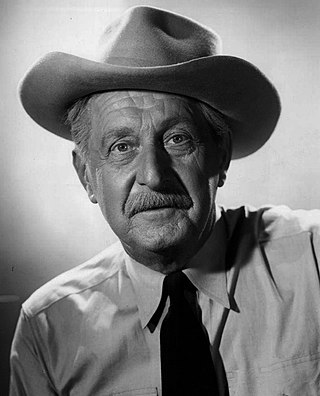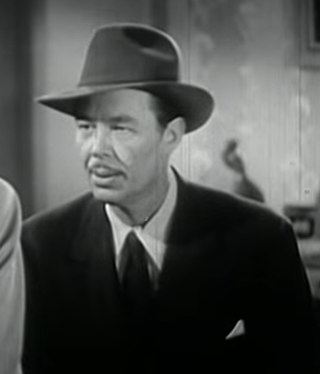Plot
An Indian tribe, the Osekas, in the north-west near the Canadian border has been depending on the yielding of salmon fish out of a nearby river for centuries. They smoke them so as to have enough food supplies for the rest of the year. They enjoy a good relationship with The Royal Canadian Mounted Police. Roy Rogers, the singing hero, is one of their most important friends, he joins the bureau of Indian affairs so as to defend their way of life more easily. Mr. Banning informs the head man of the Indian Village, Nogura, that he is going to build a fish cannery in the vicinity next to the river. The Indians are afraid the cannery is going to take all the fish from the river and not enough will remain for them. Mr Banning wants to hire the Indians to work for him but they are busy catching salmon and making supplies. As feared by the Indians the traps designed to catch salmon installed by the cannery catch all the fish and leave none to the Indians. The owner of the cannery suggests they move further north and start hunting. There is even a danger for the Indians to be removed into a reservation. Roy Rogers comes to the rescue with a herd of cattle which will prevent them from starving. With Ann Keith, the good-looking district nurse, he takes all the necessary measures to avoid the possible breakout of a local Indian war, the Osekas threatening to rob the cannery industry. The task will be difficult since the managers of the cannery will not hesitate to do anything to defend their interests and make as much money as possible out of it. The foreman even suggests murdering Rogers. Mr Banning’s plan is however much more deceitful since he pretends to try and collaborate with Rogers, letting for example some of the fish go through for the Indians to catch them and even meeting them in an apparently friendly way. Things get worse when a Canadian Mountie is found dead and the Indian chief, having been seen taking salmon from traps, is suspected to be the murderer. This suits the foreman Stagg and Mr. Banning as they are the responsible people for that crime. Nevertheless they intend to murder Chief Nogura who knows they are guilty. Foreman Stagg wanted to burn down a Canadian competitor’s cannery and was caught red-handed by a Mountie, so he killed him. Fortunately their plans of murder are being overheard by one of Roy’s friends who can tell him. Roy brings Nogura to deputy sheriff Hartley’s custody and plans to prove that the Indian chief is innocent. The Indians feel all the more offended and Roy under pressure as sheriff Bradley feels the need to put Nogura into jail due to popular indignation. They break into the jail house to get Nogura out but the cell is empty since Banning and Stagg got him out first. Eventually Roy and his Indian friends manage to prove that Banning and Stagg schemed to burn down the Canadian cannery to improve their earnings and fulfill a huge contract ,even if it means overfishing, as well as put the blame on Nogura, who is finally proven not guilty. Just before a final shootout the head of The Mounted Police can witness the two greedy men’s try to set their competitor’s cannery on fire. Banning and Stagg get arrested, their plans to fish the river stream empty fail, the Osekas can go on with their way of life and all is well that ends well.

Salmon is the common name for several commercially important species of euryhaline ray-finned fish from the genera Salmo and Oncorhynchus of the family Salmonidae, native to tributaries of the North Atlantic (Salmo) and North Pacific (Oncorhynchus) basins. Other closely related fish in the same family include trout, char, grayling, whitefish, lenok and taimen, all coldwater fish of the subarctic and cooler temperate regions with some sporadic endorheic populations in Central Asia.

Gillnetting is a fishing method that uses gillnets: vertical panels of netting that hang from a line with regularly spaced floaters that hold the line on the surface of the water. The floats are sometimes called "corks" and the line with corks is generally referred to as a "cork line." The line along the bottom of the panels is generally weighted. Traditionally this line has been weighted with lead and may be referred to as "lead line." A gillnet is normally set in a straight line. Gillnets can be characterized by mesh size, as well as colour and type of filament from which they are made. Fish may be caught by gillnets in three ways:
- Wedged – held by the mesh around the body.
- Gilled – held by mesh slipping behind the opercula.
- Tangled – held by teeth, spines, maxillaries, or other protrusions without the body penetrating the mesh.
Steveston, founded in the 1880s, is a neighbourhood of Richmond in Metro Vancouver. On the southwest tip of Lulu Island, the village is a historic port and salmon canning centre at the mouth of the South Arm of the Fraser River. The early 1900s style architecture attracts both the film and tourism industries.
The Kids from Room 402 is an animated series produced by CinéGroupe and Saban Entertainment that premiered on October 9, 1999 on the Fox Family Channel in the USA, and on August 29, 2000 on Teletoon in Canada. It consists of 52 half-hour episodes, the last of which aired in 2000, with reruns airing until 2005. The series was also seen in Latin America and Europe on Fox Kids, with the latter region still airing the series after the Fox Kids channels were purchased by Disney and changed their name to Jetix; remaining on their schedule until the Jetix channels were once again rebranded as Disney XD.

The Atlantic salmon is a species of ray-finned fish in the family Salmonidae. It is the third largest of the Salmonidae, behind Siberian taimen and Pacific Chinook salmon, growing up to a meter in length. Atlantic salmon are found in the northern Atlantic Ocean and in rivers that flow into it. Most populations are anadromous, hatching in streams and rivers but moving out to sea as they grow where they mature, after which the adults seasonally move upstream again to spawn.

The Chinook salmon is the largest and most valuable species of Pacific salmon. Its common name is derived from the Chinookan peoples. Other vernacular names for the species include king salmon, Quinnat salmon, Tsumen, spring salmon, chrome hog, Blackmouth, and Tyee salmon. The scientific species name is based on the Russian common name chavycha (чавыча).

The Alagnak River is a 64-mile (103 km) tributary of the Kvichak River in the U.S. state of Alaska. It has a catchment area of approximately 1400 square mi (3600 km2). It is located in central Lake and Peninsula Borough.
The Alaskeros are Filipino seasonal migrant workers in the United States and their descendants. They worked in salmon canneries in Alaska during the summer, and on farms in Washington, Oregon, and California during the rest of the year. The Alaskeros were instrumental in the formation of the first Filipino-led union in the U.S., the Cannery Workers and Farm Laborers Union, Local 7.

Stanley Martin Andrews was an American actor perhaps best known as the voice of Daddy Warbucks on the radio program Little Orphan Annie and later as "The Old Ranger", the first host of the syndicated western anthology television series, Death Valley Days.

A fish wheel, also known as a salmon wheel, is a device situated in rivers to catch fish which looks and operates like a watermill. However, in addition to paddles, a fish wheel is outfitted with wire baskets designed to catch and carry fish from the water and into a nearby holding tank. The current of the river presses against the submerged paddles and rotates the wheel, passing the baskets through the water where they intercept fish that are swimming or drifting. Naturally, a strong current is most effective in spinning the wheel, so fish wheels are typically situated in shallow rivers with brisk currents, close to rapids, or waterfalls. The baskets are built at an outward-facing slant with an open end so the fish slide out of the opening and into the holding tank where they await collection. Yield is increased if fish swimming upstream are channeled toward the wheel by weirs.

Chetlo Harbor, also known as over the years as Cougar Bend, Napoleon, and Stanley, was a small settlement located near the southwest coast of Washington State, in the southeast corner of Willapa Bay at the mouth of the Naselle River. The population of the settlement was approximately 50 at its peak. The businesses there over the years consisted of a salmon fishery and canning operation, a logging operation, and a mining company. Chetlo, or Jetlo, is a Chinook Jargon word meaning oyster.

Richard Dye, known professionally as Dick Curtis, was an American actor who made over 230 film and television appearances during his career.
Crescent Porter Hale (1872–1937) was an American industrialist who was involved in the canned salmon industry in Bristol Bay, Alaska throughout his adult life.

River's End is a 1930 American Pre-Code Western film directed by Michael Curtiz and starring Charles Bickford and Evalyn Knapp. Bickford plays two roles, a Royal Canadian Mounted Police (RCMP) sergeant and the man he is after. The film is the second of three adaptations of the bestselling novel The River's End by James Oliver Curwood, the others being released in 1920 and 1940.

Robert Deniston Hume was a cannery owner, pioneer hatchery operator, politician, author, and self-described "pygmy monopolist" who controlled salmon fishing for 32 years on the lower Rogue River in U.S. state of Oregon. Born in Augusta, Maine, and reared by foster parents on a farm, Hume moved at age 18 to San Francisco to join a salmon-canning business started by two of his brothers. They later re-located to Astoria on the Columbia River, where they prospered. After the death of his first wife and their two young children, Hume moved again and started anew in Gold Beach, at the mouth of the Rogue.
Puget Sound fishermen's strike of 1949 was a labor strike by fishermen in the Pacific Northwest.
The Coast Salish people of the Canadian Pacific coast depend on salmon as a staple food source, as they have done for thousands of years. Salmon has also served as a source of wealth and trade and is deeply embedded in their culture, identity, and existence as First Nations people of Canada. Traditional fishing is deeply tied to Coast Salish culture and salmon were seen "as gift-bearing relatives, and were treated with great respect" since all living things were once people according to traditional Coast Salish beliefs. Salmon are seen by the Coast Salish peoples are beings similar to people but spiritually superior.
The Pacific Salmon War was a period of heightened tensions between Canada and the United States over the Pacific Salmon catch. It began in 1992 after the first Pacific Salmon Treaty, which had been ratified in 1985, expired, and lasted until a new agreement was signed in 1999. Disagreements were high in 1994, when a transit fee was set on American fishing vessels using the Inside Passage and a ferry was blockaded by fishing boats in Friday Harbor, Washington.

The Code of the Mounted is a 1935 American drama film directed by Sam Newfield from a screenplay by Milton Raison. The film stars Kermit Maynard, Robert Warwick, and Jim Thorpe.











